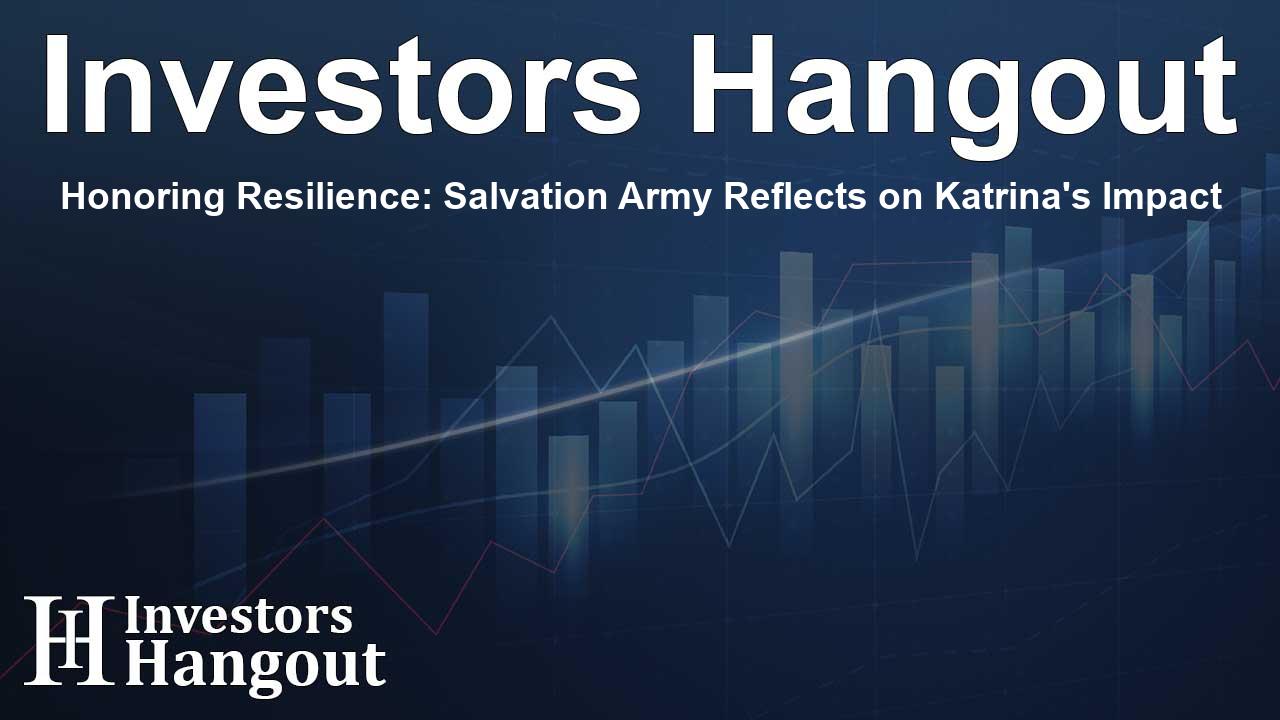Honoring Resilience: Salvation Army Reflects on Katrina's Impact

Reflecting on a Historic Moment in Disaster Relief
The Salvation Army stands as a testament to resilience, and its response to Hurricane Katrina is a significant chapter in its history. As the organization reflects on this pivotal disaster, it is crucial to honor the strength of the survivors and the invaluable lessons learned throughout the years.
Commitment to Community Support
The aftermath of Hurricane Katrina saw The Salvation Army mobilizing rapidly to assist those affected. Providing food, shelter, and emotional support, the organization helped countless individuals rebuild their lives. This commitment extended far beyond the immediate response; it transformed into a long-term mission to support communities facing disasters.
The Lessons Learned
The disaster taught The Salvation Army significant lessons about emergency preparedness and response. These insights have reshaped their approach to disaster management, ensuring a more effective strategy in future emergencies. Continuous training and refining response techniques have become a priority, enabling them to offer timely assistance to communities in need.
Ongoing Efforts and Future Endeavors
The Salvation Army continues to address the challenges faced by communities vulnerable to disasters. By investing in local outreach programs, they empower residents to prepare for potential disasters, fostering resilience within communities. This proactive approach reinforces their dedicated mission, firmly aligning with their core values of service, compassion, and community support.
Celebrating the Spirit of Service
As we commemorate the anniversary of Hurricane Katrina, it is essential to celebrate the spirit of service that defines The Salvation Army. The organization’s unwavering dedication to assisting those in need remains a beacon of hope, reminding us that together, we can rise above adversity.
Frequently Asked Questions
What was the primary response of The Salvation Army during Hurricane Katrina?
The Salvation Army provided immediate relief through food, shelter, and emotional support to thousands of individuals affected by the disaster.
How has The Salvation Army changed its approach to disaster response post-Katrina?
They have enhanced their emergency preparedness and response strategies, focusing on continuous training and community empowerment.
What role does community resilience play in The Salvation Army’s objectives?
Community resilience is crucial for preparing and reducing vulnerability to disasters, and The Salvation Army emphasizes this through outreach programs.
How does The Salvation Army commemorate the anniversary of Hurricane Katrina?
The organization honors the event by reflecting on lessons learned and celebrating the recovery and resilience of those impacted.
What can individuals do to support The Salvation Army’s mission?
Individuals can volunteer, donate, or participate in local outreach initiatives aimed at supporting disaster preparedness and recovery efforts.
About The Author
Contact Owen Jenkins privately here. Or send an email with ATTN: Owen Jenkins as the subject to contact@investorshangout.com.
About Investors Hangout
Investors Hangout is a leading online stock forum for financial discussion and learning, offering a wide range of free tools and resources. It draws in traders of all levels, who exchange market knowledge, investigate trading tactics, and keep an eye on industry developments in real time. Featuring financial articles, stock message boards, quotes, charts, company profiles, and live news updates. Through cooperative learning and a wealth of informational resources, it helps users from novices creating their first portfolios to experts honing their techniques. Join Investors Hangout today: https://investorshangout.com/
The content of this article is based on factual, publicly available information and does not represent legal, financial, or investment advice. Investors Hangout does not offer financial advice, and the author is not a licensed financial advisor. Consult a qualified advisor before making any financial or investment decisions based on this article. This article should not be considered advice to purchase, sell, or hold any securities or other investments. If any of the material provided here is inaccurate, please contact us for corrections.
